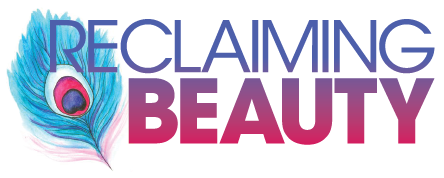Uprooting the Inner Critic
“The true focus of revolutionary change is never merely the oppressive situations we seek to escape, but that piece of the oppressor which is planted deep within us.”
Audre Lorde, self-described “black, lesbian, mother, warrior, poet” knew a thing or two about embodying marginalized identities. I find this quote of hers from Sister Outsider: Essays and Speeches, particularly moving as I endeavor to support the process of breaking free from the tyranny of our inner critic.
In the Reclaiming Your Body as a Resource class, we explore the idea of “Honoring Your Protectors.” Influenced by Internal Family Systems, we imagine all parts of ourselves believe they are being helpful, even if they are “being helpful” in extreme ways. Our inner critic part is often working to motivate us in some way or protect the very tender and vulnerable parts within us. Like Donald Kalsched highlights in his book “Trauma and the Soul”, the inner critic both protects AND persecutes these vulnerable parts of Self.
Exploring the Inner Critic
Honoring your protectors can provide a lot of spaciousness to explore the protective function of the inner critic. However, it is also important to become aware of how the voice of the inner critic speaks through internalized oppressive messages from our attachment figures including our caregivers and society.
For example, this voice may start with the taunt “I am too big/fat/unattractive and therefore unlovable, unworthy, not enough.” We can work with the process of bringing mindful curiosity to how our focus on our bodies deflects from tending to the vulnerable inner beliefs.
Identifying the Oppressor
However, we must also name the sizeism and weightism that are rampant in our society. It does harm when we are attempting to heal if we strip the recovery process from the cultural context of weight stigma that creates vulnerability to body image distortion and eating disorders. It is imperative to identify where these oppressive messages are coming from, and weed out the “oppressor within us.”
These internalized oppressive messages are also created from internalizing the experience of being objectified by society and our attachment figures. When we live through experiences that teach us that our value is as an object, rather than a subject, we fall into the pattern of self-objectification.
These experiences might include:
being valued for our appearance rather than who we are as a person
bullying
media messages about our image
all prejudices including sizeism/weightism, racism, sexism, sexual orientation discrimination, ableism, and socioeconomic status
sexual objectification of all bodies
any trauma history or boundary violations we have experienced
Shifting Your Focus: Building Embodiment
Jean Kilbourne, pioneering activist, speaker, and writer says,
“Turning a person into a thing is almost always the first step in justifying violence towards that person.”
When we have these experiences of being turned into a thing/object, we are more likely to fall into the oppressive pattern of justifying violence towards ourselves through our thoughts (inner critic) or actions (self-harming behaviors.)
“I am a subject, not an object” is an important rallying cry of the Reclaiming Beauty process. The healing path is to reclaim the beauty of our inner Self, rather than feeling tethered to a distorted reflection created from messages from the inner critic/perpetrator/oppressor.
This rallying cry also points to the truth that healing from body image issues will only come when you shift your focus from an objectifying view of your body to inhabiting your body from the inside out. This shift happens as we build embodiment. As my mentors Rachel Lewis-Marlow and Paula Scatoloni say in their Embodied Recovery for Eating Disorders work, “Recovery equals greater embodiment.”
Greater embodiment is possible as we uproot the inner critic.
Learning How to Uproot the Inner Critic: Insights from a Disordered Eating Therapist
Here’s an Uprooting the Inner Critic practice for you, inspired by Audre Lorde’s quote:
Make a list of the messages you receive from your inner critic.
Mark next to these messages where they come from. Whether it’s attachment figures or societal messages about size, race, gender, class, sexual preference, ableism, socioeconomic status, or experiences of being treated as an object.
Journal about the impact of perpetuating this voice on yourself. For example, how does it impact your nervous system? Do you notice the voice triggering a fight/flight/freeze or appease response?
Imagine what it would feel like in your body to be free from these messages and journal about what you see.
Are you ready to uproot your inner critic?
Join us at Reclaiming Beauty as we start a journey toward embracing our happiest selves. Our disordered eating therapists stand ready to support you in reclaiming your innate beauty and authenticity. Follow these few steps to get started:
Contact us so we can get to know you better.
Learn more about our approach!
Discover more about uprooting the inner critic.
Other Services We Offer in Asheville, NC
Discover a holistic approach to well-being at Reclaiming Beauty. Our personalized embodiment coaching unlocks the wisdom within, fostering self-compassion and resilience. Or, explore the transformative benefits of the Safe and Sound Protocol (SSP). This is a non-invasive auditory intervention that enhances social engagement and reduces stress. We also offer body-centered psychotherapy!



